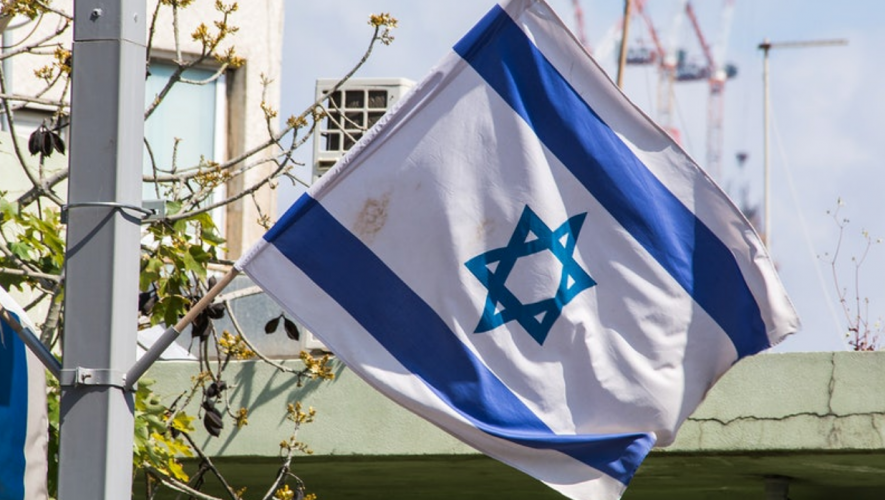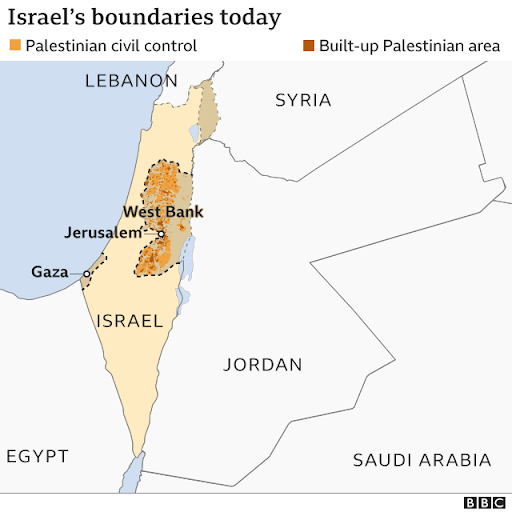“Israel’s Apartheid against Palestinians: a cruel system of domination,” reads Amnesty International’s recent report. With their statement, Amnesty International joined forces with Human Rights Watch, which claimed last year that Israel is guilty of the “Crimes of Apartheid and Persecution.”
Make no mistake, there is certainly discrimination in Israel, as there is in every country on Earth; however, contrary to Amnesty International and Human Rights Watch’s claims, Israeli discrimination does not rise anywhere near the level of apartheid.
Apartheid is when races are forcibly segregated on buses, in schools, and throughout the government. It is when the South African government forbade Black people from voting, forced them to live on “native reserves,” barred mixed marriages, and refused to properly educate Black students. Apartheid is discrimination taken to the absolute extreme, and slandering Israel’s government as an apartheid regime has real consequences. The Harvard Crimson editorial board just endorsed Boycott, Divestment, and Sanctions—a movement purportedly inspired by the campaign to end South African Apartheid—whose founders have repeatedly made clear their aim to see Israel wiped off of the map. For Apartheid Week 2022, campus groups across the country staged over ninety events. But Israel—the state founded to protect Jews from persecution that guarantees equality in its constitution—is no more an apartheid state than North Korea is a democratic one.
Arabs, the demographic minority that Israel stands accused of oppressing, hold significant positions of power in the Israeli government and receive tremendous amounts of aid. In June 2021, the Arab Ra’am party joined forces with Israel’s dominant coalition for the first time in Israeli history, giving Arab representatives and their constituents critical influence over legislation. Earlier this year, Israel’s Judicial Selection Committee picked Khaled Kabub, an Israeli Arab, to replace George Karra, another Israeli Arab, on the supreme court.
Annually, hundreds of Israeli Arabs—who, along with ultra-Orthodox Jews, are exempt from mandatory conscription—volunteer to enlist in the Israeli Defense Force, and the Israeli government just pledged to invest $9.2 billion in Arab communities. In fact, Israel’s government sets aside money specifically for Arab-women-owned businesses and expanded operations in 2021 to assist all Arab-owned businesses. Importantly, aid to Arabs is not only a recent phenomenon; government assistance programs date back decades.
Additionally, Arabs living in Israel are, for the most part, happy. A 2017 Israel Democracy Institute and Tel Aviv University poll found that 57% of Israeli Arabs see their situations as “good” or “very good.” Another 2017 survey from Tel Aviv University reported that 63% of Israeli Arabs feel that Israel is a “positive” place to live. Overall, 67% of Israeli Arabs are optimistic for Israel’s future.
While racism is a top concern of Israeli Arabs—47% feel that Israeli society treats them unequally— polling of this demographic is actually more optimistic than similar polling of Black Americans. Here in the US, as of 2021, 65% of Black adults are “very dissatisfied” with how American society treats Black Americans and 84% believe racism is widespread.
Though, when organizations like Amnesty International and Human Rights Watch cast accusations of apartheid, they tend to focus on Arabs in the West Bank and the Gaza Strip. According to these organizations, Israel’s blockade of the Gaza Strip and military checkpoints in the West Bank amount to the International Criminal Court’s definition of apartheid: “inhumane acts . . . committed in the context of . . . systematic oppression and domination . . . and committed with the intention of maintaining that regime.” Amnesty International goes further, claiming that Israel’s prioritization of Jewish immigrants is a form of Apartheid as well.
Still, these allegations lack substance. Israel enacted its policies in Gaza and the West Bank because Palestinian leadership refuses to recognize Israel as an independent nation and frequently attack it.
Regarding Israel’s (and Egypt’s) blockade of Gaza, in 2005 Israel actually disengaged from the Strip; Israeli troops not only retreated but also forced thousands of settlers in the area to move out. At the same time, Israel and the international community donated considerable aid to the region—Israel bragged that its greenhouses could help feed more than one million Palestinians.
But looters ransacked the $14 million worth of agricultural infrastructure that Israel and others handed over to them. Indeed, within a year of Israel’s withdrawal, Palestinians in the strip elected Hamas, a terrorist organization, to power, and militants snuck into Israel, killing and kidnapping Israeli soldiers. Israel’s blockade of Gaza was a response to these aggressions. Since then, Gazan militants have proved Israel’s policy necessary time and again, attacking Israel with rockets and incendiary devices in 2008, 2012, 2014, 2018, and last May in 2021. All the while, openly targeting “most of the overcrowded areas . . . the civilian society,” in Israel.
Some critique the blockade as too stringent and say that the collection of banned items is unrelated to Israel’s security needs. For instance, Israel has prohibited staples like dried fruit and industrial salt from entering Gaza as it allows in corn and regular salt. But, while Israel is relatively secretive about the specifics of its blockade policy, journalists have shed light on why it makes these types of decisions. Just recently, Israel intercepted twenty three tons of chocolate that Hamas intended to hoard from Gazan citizens and sell back to them for military funding.
Israel’s establishment of military checkpoints was, like its blockade of Gaza, also a response to terrorism. In 2000, Palestinian leadership launched the Second Intifada: a stream of terrorist attacks that killed more than one thousand Israelis by 2005. So, in 2002, Israel began construction on a wall between itself and the West Bank, where 72% of suicide bombers were from. Israel repeatedly adjusted the wall’s path to account for Palestinian civilians’ needs and its Supreme Court ruled that it “cannot be motivated by a desire to ‘annex’ territories.” Israel today continues to minimize the threat of terrorism by limiting border crossings and, when necessary, erecting additional checkpoints within certain towns.
Israel’s prioritization of Jewish immigration is not a form of apartheid either. Judaism, being a religion, is an ideology that people can profess belief in and convert to; countries all over the world tailor their immigration systems to preserve unifying national ideologies. US code 8 section 1427, for instance, requires that immigrants be “attached to the principles of the Constitution of the United States.” Political scholarship describes that “religious denomination plays out as an important condition for naturalisation in most of the Muslim countries,” and even Hamas’ founding charter says it will welcome “every Moslem who embraces its faith.” If allowing ideologies to influence immigration law constitutes the “inhumane acts” of apartheid, then nearly every country on Earth would be an apartheid state and the word apartheid would be devoid of meaning.
Israel did not enact its policies in Gaza and the West Bank with the intention of oppressing Palestinians, a necessary component of the Rome Statute’s apartheid defintion. Rather, it enacted them with the intention of protecting Israeli citizens, including Israeli Arabs, from terrorism.
You don’t have to take Israel at its word to believe this. David Jaeger and Daniele Paserman, two professors of economics, analyzed the Israeli–Palestinian conflict between 2000 and 2005 and concluded that “to some extent Israel uses [border] closings as a retaliatory measure for Palestinian violence . . . the Israelis react in a predictable and statistically significant way to Palestinian violence against them.”
Israel’s government has—time and time and time and time again—sought diplomatic ends to the Israeli–Palestinian conflict. Meanwhile, the Palestinian Authority’s legal system, which governs Palestinian areas of the West Bank, openly incentivizes terrorism: their Prisoners and Released Prisoners law No. 19 grants Israeli prisoners, incarcerated for “struggle against the [Israeli] occupation,” a monthly salary. The law also exempts released prisoners from school tuition and health insurance payments. Israeli prisoners, the law says, “are a fighting sector and an integral part of the fabric of the Arab Palestinian society.”
This isn’t to say Israel’s laws are perfect. The Knesset recently renewed a 2003 bill, passed during the Second Intifada, that bars Palestinians who live in the West Bank or Gaza and are married to Israeli spouses from obtaining permanent residency in Israel. The law, critics argue, is a form of discrimination against Palestinians. Still, Israel didn’t pass this law in a vacuum. Rather, Israel passed it in response to a terrorist attack that exploited its prior marriage policy to kill sixteen Israelis. Palestinian leadership has, unfortunately, forced Israel into the awkward position of balancing ever-evolving threats of terrorism with Palestinian civilians’ personal lives.
Though, regardless of the law’s impact, an essential component of apartheid is the “intention of maintaining” a regime of “systematic oppression and domination,” and—given Israel’s uniquely hostile environment—there are clear security-related justifications for Israel’s policies. The fact that Israel’s practices differ between Arabs in Israel proper, those in the Gaza strip, and those in the West Bank is itself evidence of Israel’s differing concerns about these regions.
There is simply no world in which Israel is an apartheid state. Claims to the contrary are lies.
Jake Egelberg is a 2021-22 CAMERA Fellow studying biochemistry and journalism at Northeastern University.



